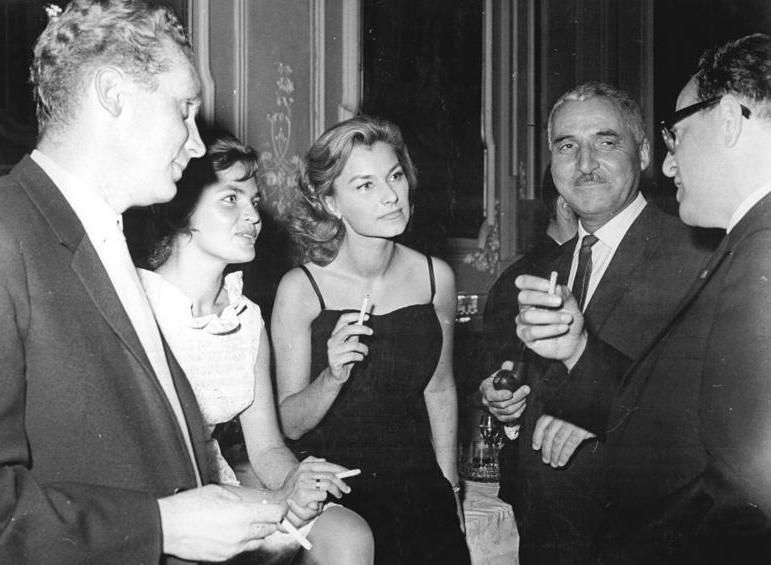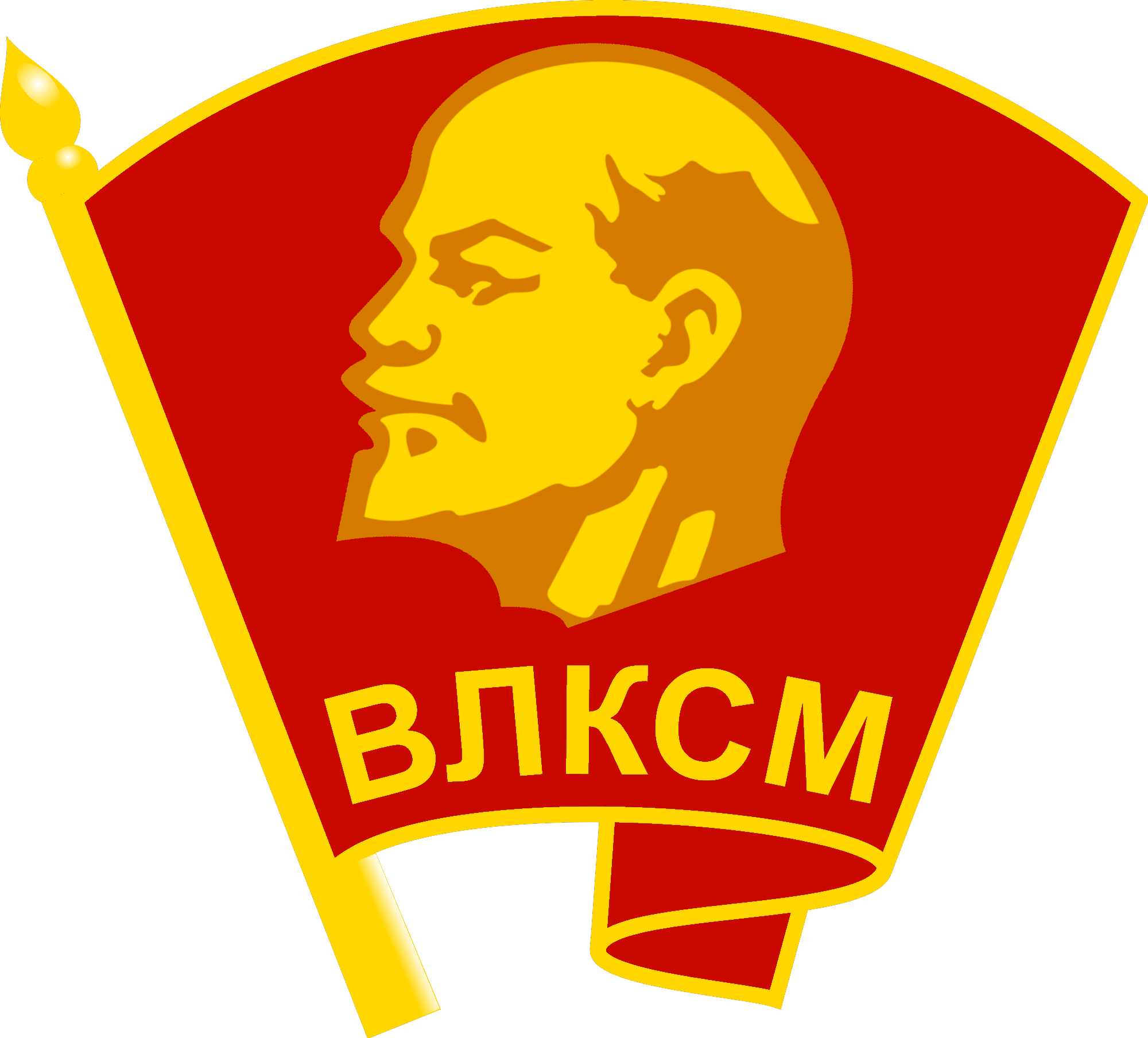|
Bonus (film)
''Bonus'' (russian: Премия, Premija) is a 1975 Soviet drama film directed by Sergey Mikaelyan. The film is based on the novel of the same name by Alexander Gelman. Plot At a meeting of the Communist Party committee of a construction trust (russian: строительного треста), one of the supervisors, Potapov, makes a surprise announcement. He and his team refuse to receive the bonus money issued for overfulfillment of plan targets. According to Potapov, the management of the trust regularly artificially lowers targets so that the trust can easily exceed its targets. Potapov proves his words with compelling economic data. The director of the trust, Batarcev, dismisses his allegations. He tries to disparage Potapov as a "troublemaker" and attempts to cover up the scandal. However, the Party Secretary unexpectedly supports Potapov's initiative ... Cast * Yevgeny Leonov as ''Vasilij Potapov, Supervisor'' * Vladimir Samoilov as ''Pavel Batarcev, Trust Director'' ... [...More Info...] [...Related Items...] OR: [Wikipedia] [Google] [Baidu] |
Sergey Mikaelyan
Sergey Gerasimovich Mikaelyan (russian: Серге́й Гера́симович Микаэля́н; 1 November 1923 – 10 December 2016) was a Soviet film director and winner of the USSR State Prize (1976). He directed ten films between 1965 and 1986. His 1983 film ''Love by Request'' was entered into the 33rd Berlin International Film Festival. Biography Sergey Mikaelyan was born on 1 November 1923 in Moscow. When he was seventeen he voluntarily served in the Great Patriotic War and was wounded at Rzhev. In 2015 he published a novella titled "Not Killed at Rzhev" (russian: Не убит подо Ржевом) about his experiences in the war. In 1951 he graduated from the directing department of GITIS (workshop of Boris Zakhava, Maria Knebel, A. Popov), and then, in 1959, the director's course at the Mosfilm. Sergey Mikaelyan staged performances in the Saratov, Gorky, Moscow, and Leningrad theaters. He also worked as the chief director of the Tashkent Russian Theatre n ... [...More Info...] [...Related Items...] OR: [Wikipedia] [Google] [Baidu] |
Aleksandr Pashutin
Aleksandr Sergeyevich Pashutin (russian: Алекса́ндр Серге́евич Пашу́тин; born January 28, 1943, Moscow, USSR) is a Soviet and Russian stage and film actor, People's Artist of the Russian Federation (1999). Selected filmography * 1975: ''Bonus'' as Oleg Kachnov * 1976: ''How Czar Peter the Great Married Off His Moor'' as painter * 1977: '' White Bim Black Ear'' as dog show judge * 1977: '' The Second Attempt of Viktor Krokhin'' as Sergey Andreevich * 1977: ''Destiny'' as crazy man (uncredited) * 1980: '' Air Crew'' as a passenger with a dislocated jaw * 1980: ''Investigation Held by ZnaToKi'' as Gorobets * 1980: '' The Evening Labyrinth'' as waiter * 1980: '' White Snow of Russia'' as Semyonov * 1982: '' Incident at Map Grid 36-80'' as Captain Gremyachkin * 1982: ''The Train Has Stopped'' as train passenger * 1983: ''Quarantine'' as colleague of the grandmother * 1983: '' From the Life of a Chief of the Criminal Police'' as driver Utkin * 1983: '' Start ... [...More Info...] [...Related Items...] OR: [Wikipedia] [Google] [Baidu] |
1975 Films
The year 1975 in film involved some significant events. Highest-grossing films North America The top ten 1975 released films by box office gross in North America are as follows: International The highest-grossing 1975 films in countries outside of North America. Worldwide gross The following table lists known worldwide gross figures for several high-grossing films that originally released in 1975. Note that this list is incomplete and is therefore not representative of the highest-grossing films worldwide in 1975. This list also includes gross revenue from later re-releases. Events *March 26: The film version of The Who's ''Tommy'' premieres in London. *May: In order to create the necessary special effects for his film, ''Star Wars'', George Lucas forms Industrial Light and Magic. *June 20: ''Jaws'' is released and becomes the highest-grossing movie of all-time and the highest-grossing movie of the year and the first movie to earn $100 million in US and Canadian theatr ... [...More Info...] [...Related Items...] OR: [Wikipedia] [Google] [Baidu] |
1975 Drama Films
It was also declared the ''International Women's Year'' by the United Nations and the European Architectural Heritage Year by the Council of Europe. Events January * January 1 - Watergate scandal (United States): John N. Mitchell, H. R. Haldeman and John Ehrlichman are found guilty of the Watergate cover-up. * January 2 ** The Federal Rules of Evidence are approved by the United States Congress. ** Bangladesh revolutionary leader Siraj Sikder is killed by police while in custody. ** A bomb blast at Samastipur, Bihar, India, fatally wounds Lalit Narayan Mishra, Minister of Railways. * January 5 – Tasman Bridge disaster: The Tasman Bridge in Hobart, Tasmania, Australia, is struck by the bulk ore carrier , killing 12 people. * January 7 – OPEC agrees to raise crude oil prices by 10%. * January 10–February 9 – The flight of ''Soyuz 17'' with the crew of Georgy Grechko and Aleksei Gubarev aboard the ''Salyut 4'' space station. * January 15 – Alvor Agreement: Portugal an ... [...More Info...] [...Related Items...] OR: [Wikipedia] [Google] [Baidu] |
Chicago International Film Festival
The Chicago International Film Festival is an annual film festival held every fall. Founded in 1964 by Michael Kutza, it is the longest-running competitive film festival in North America. Its logo is a stark, black and white close up of the composite eyes of early film actresses Theda Bara, Pola Negri and Mae Murray, set as repeated frames in a strip of film. In 2010, the 46th Chicago International Film Festival presented 150 films from more than 50 countries. The Festival's program is composed of many different sections, including the International Competition, New Directors Competition, Docufest, Black Perspectives, Cinema of the Americas, and Reel Women. Its main venue is the AMC River East 21 Theatre in the Streeterville neighborhood of Chicago. International Connections Program The International Connections Program was created in 2003 in order to raise awareness of the international film culture and diversity of Chicago, and to make the festival more appealing to audienc ... [...More Info...] [...Related Items...] OR: [Wikipedia] [Google] [Baidu] |
Karlovy Vary International Film Festival
The Karlovy Vary International Film Festival ( cs, Mezinárodní filmový festival Karlovy Vary) is a film festival held annually in July in Karlovy Vary, Czech Republic. The Karlovy Vary Festival is one of the oldest in the world and has become Central and Eastern Europe's leading film event. History The pre-war dream of many enthusiastic filmmakers materialized in 1946 when a non-competition festival of films from seven countries took place in Mariánské Lázně and Karlovy Vary. Above all it was intended to screen the results of the recently nationalized Czechoslovak film industry. After the first two years the festival moved permanently to Karlovy Vary. The Karlovy Vary IFF first held an international film competition in 1948. Since 1951, an international jury has evaluated the films. The Karlovy Vary competition quickly found a place among other developing festivals and by 1956 FIAPF had already classified Karlovy Vary as a category A festival. Given the creation of the ... [...More Info...] [...Related Items...] OR: [Wikipedia] [Google] [Baidu] |
USSR State Prize
The USSR State Prize (russian: links=no, Государственная премия СССР, Gosudarstvennaya premiya SSSR) was the Soviet Union's state honor. It was established on 9 September 1966. After the dissolution of the Soviet Union, the prize was followed up by the State Prize of the Russian Federation. The State Stalin Prize ( Государственная Сталинская премия, ''Gosudarstvennaya Stalinskaya premiya''), usually called the Stalin Prize, existed from 1941 to 1954, although some sources give a termination date of 1952. It essentially played the same role; therefore upon the establishment of the USSR State Prize, the diplomas and badges of the recipients of Stalin Prize were changed to that of USSR State Prize. In 1944 and 1945, the last two years of the Second World War, the award ceremonies for the Stalin Prize were not held. Instead, in 1946 the ceremony was held twice: in January for the works created in 1943–1944 and in June for the ... [...More Info...] [...Related Items...] OR: [Wikipedia] [Google] [Baidu] |
All-Union Film Festival
The All-Union Film Festival (russian: Всесоюзный кинофестиваль; tr.:''Vsesoyuznyy kinofestival'', also known as ВКФ; ''VKF'') was one of the most important film festivals of the Soviet Union. It was founded in 1958 and held regularly from 1964-1988. It was held annually from 1972 onwards, and bi-annually before that (before 1964, there were festivals in the years 1958, 1959 and 1960). Its time and location were determined by Goskino and the Union of Soviet Composers. There were four categories among which prizes were handed out: *Fiction films *Documentaries, scientific-popular films, and film-journals *Fiction films for children and youth (from 1977) *Animated films (from 1977) Locations # 1964, Leningrad # 1966, Kiev # 1968, Leningrad # 1970, Minsk # 1972, Tbilisi # 1973, Alma-Ata # 1974, Baku # 1975, Kishinev # 1976, Frunze # 1977, Riga # 1978, Yerevan # 1979, Ashgabad # 1980, Dushanbe # 1981, Vilnius # 1982, Tallinn Tallinn () is the most popu ... [...More Info...] [...Related Items...] OR: [Wikipedia] [Google] [Baidu] |
Nina Urgant
Nina Nikolayevna Urgant (russian: Ни́на Никола́евна У́ргант; 4 September 1929 – 3 December 2021 ) was a Soviet and Russian film and stage actress. She was granted the honor of in 1974. Family * Father — Nikolay Andreevich Urgant, Estonian, officer.[...More Info...] [...Related Items...] OR: [Wikipedia] [Google] [Baidu] |
Komsomol
The All-Union Leninist Young Communist League (russian: link=no, Всесоюзный ленинский коммунистический союз молодёжи (ВЛКСМ), ), usually known as Komsomol (; russian: Комсомол, links=no ()), a syllabic abbreviation of the Russian ), was a political youth organization in the Soviet Union. It is sometimes described as the youth division of the Communist Party of the Soviet Union (CPSU), although it was officially independent and referred to as "the helper and the reserve of the CPSU". The Komsomol in its earliest form was established in urban areas in 1918. During the early years, it was a Russian organization, known as the Russian Young Communist League, or RKSM. During 1922, with the unification of the USSR, it was reformed into an all-union agency, the youth division of the All-Union Communist Party. It was the final stage of three youth organizations with members up to age 28, graduated at 14 from the Young Pioneer ... [...More Info...] [...Related Items...] OR: [Wikipedia] [Google] [Baidu] |
Mikhail Semyonov (actor) (b.1984), Belarusian wrestler
{{hndis, name=Semyonov, Mikhail ...
Mikhail Semyonov or Semenov may refer to: *Mikhail Semyonov (basketball) (1933-2006), Russian basketball player *Michail Semenov (b.1986), Belarusian cross-country skier *Mikhail Innokentyevich Semyonov (1938-2019), Russian politician * Mikhail Nikolayevich Semyonov (b.1969), Russian football player and coach See also *Mikhail Siamionau Mikhail Uladzimiravich Siamionau ( be, Міхаіл Сямёнаў) (born 30 July 1984 in Minsk) is a Belarusian wrestler. Siamionau won a bronze medal in men's Greco-Roman wrestling in the category at the 2008 Beijing Olympic Games T ... [...More Info...] [...Related Items...] OR: [Wikipedia] [Google] [Baidu] |
Svetlana Nikolaevna Kryuchkova
Svetlana () is a common Orthodox Slavic feminine given name, deriving from the East and South Slavic root ''svet'' (), meaning "light", "shining", "luminescent", "pure", "blessed", or "holy", depending upon context similar if not the same as the word Shweta in Sanskrit. Particularly unique among similar common Russian names, this one is not of ancient Slavic origin, but was coined by Alexander Vostokov in 1802 and popularized by Vasily Zhukovsky in his eponymous ballad " Svetlana", the latter first published in 1813. The name is also used in Ukraine, Belarus, Slovakia, Macedonia, and Serbia, with a number of occurrences in non-Slavic countries. In the Russian Orthodox Church ''Svetlana'' is used as a Russian translation of '' Photina'' (derived from ''phos'' ( el, φως, "light")), a name sometimes ascribed to the Samaritan woman at Jacob's well (the Bible, John 4). Semantically similar names to this are '' Lucia'' (of Latin origin, meaning "light"), ''Claire'' ("light" o ... [...More Info...] [...Related Items...] OR: [Wikipedia] [Google] [Baidu] |


